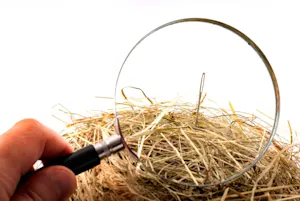What Makes This Word Tick
"Cajole" is a word that perfectly captures the art of persuasion through charm and flattery. It's like a gentle, persuasive nudge to get someone to do what you want, often with a sweet smile or a dash of humor. Though it sounds a little fancy, it's an everyday kind of coaxing, filled with warmth and a touch of persuasion.
If Cajole Were a Person…
If "cajole" were to step into a room, it would be the friendly neighbor who always manages to get help carrying groceries by complimenting everyone's shoes. It's that friend who convinces you another slice of pie is a great idea, all while chuckling about it. With a knack for turning no into maybe, they're the ultimate charmer.
How This Word Has Changed Over Time
The essence of cajoling remains largely unchanged since its 17th-century origins. Initially rooted in the French word "cajoler," meaning to chatter or prattle, it's evolved slightly to focus more on the act of coaxing. Still, the same lighthearted and persuasive undertone persists through the ages.
Old Sayings and Proverbs That Use Cajole
While "cajole" itself doesn't feature prominently in historical sayings, its spirit lives in phrases like "catch more flies with honey than vinegar." This adage embodies the kind of gentle persuasion "cajole" signifies, emphasizing kindness over force.
Surprising Facts About Cajole
One surprising tidbit about "cajole" is its obscure connection to the image of a caged bird; originally, to cajole was to entice something into a cage gently. This charming word also sneakily fits into many a negotiation table and family dinner alike—wherever a little soft encouragement is needed.
Out and About With This Word
Suddenly, you find yourself at a local charity auction. Watch how the host skillfully cajoles higher bids with flattery and a twinkle in their eye. From bake sales to donations at church raffles, cajoling is a skill that never seems out of place in communal gatherings.
Pop Culture Moments Where Cajole Was Used
In pop culture, characters from Mary Poppins to Mrs. Doubtfire have effectively cajoled their way into our hearts and into tricky situations. Whether it's wooing children into daily chores with a spoonful of sugar or negotiating peace over the family table, their gentle persuasion is nothing short of iconic.
The Word in Literature
In literature, "cajole" finds its way into the dialogues of clever characters, subtly moving plots along with a dance of words. It’s the tool of charismatic characters in novels that explore relationships and social circles, achieving what direct confrontation cannot.
Moments in History with Cajole
Think of the many peace treaties brokered with delicate diplomacy. Here, cajoling played an unsung yet vital role as leaders persuaded one another to put down arms in favor of peace. Whether whispered in grand halls or across a humble farmer’s table, encouragement through charm has kept many a tense situation from boiling over.
This Word Around the World
Globally, cajoling walks distinct paths. In Japan, "amakudari" translates to "descent from heaven" and involves retired bureaucrats transitioning into corporate roles, suggesting a gentle persuasive nudge more than a forceful push. From Chinese tea ceremonies to Italian negotiations, you’ll find cajoling making appearances in various cultural settings with unique finesse.
Where Does It Come From?
Originating from the French "cajoler," the word evokes images of light chatter, a testament to its roots in social interaction. Over the years, this evolved into a more focused term encapsulating the act of coaxing with a blend of charm and tact.
How People Misuse This Word
Sometimes, people mix up "cajole" with harsher terms such as "coerce" or "force," despite its softer implications. True cajoling is about persuasion without pressure, a subtle art that often gets misunderstood.
Words It’s Often Confused With
Coerce: Implies force or threats, unlike the gentle nature of cajole.
Persuade: While similar, it's broader and doesn’t always carry the undertone of charm.
Charm: Focuses more on allure than the act of persuasion itself.
Additional Synonyms and Antonyms
Synonyms for "cajole" include coax, persuade, and flatter. On the flip side, antonyms might be coerce, force, or bully—each representing a more forceful approach.
Want to Try It Out in a Sentence?
"Despite his initial refusal, she managed to cajole him into accompanying her on the weekend trip, promising delightful surprises and endless fun."
Here’s hoping that quick jaunt through "cajole" was everything you hoped for!
















